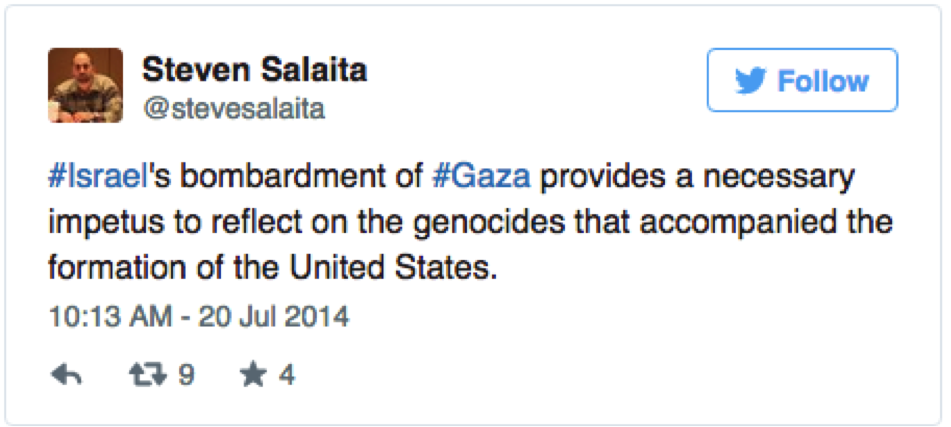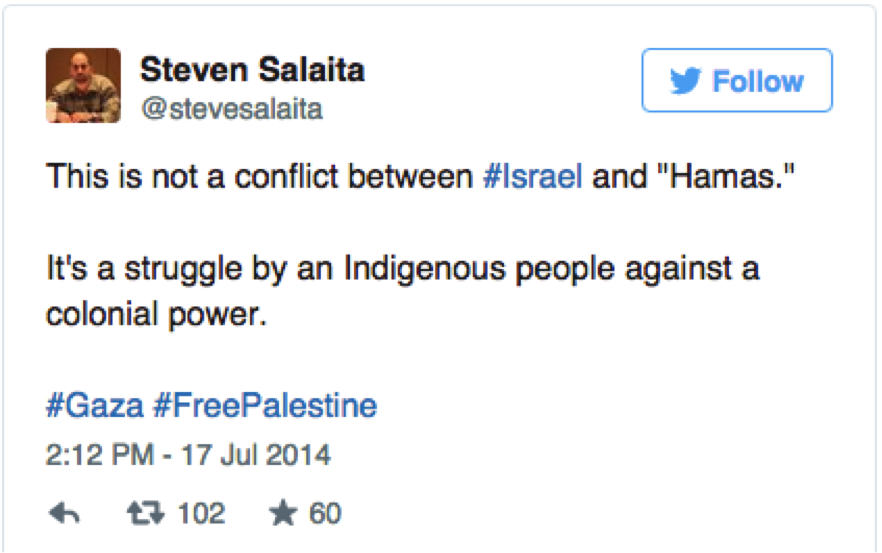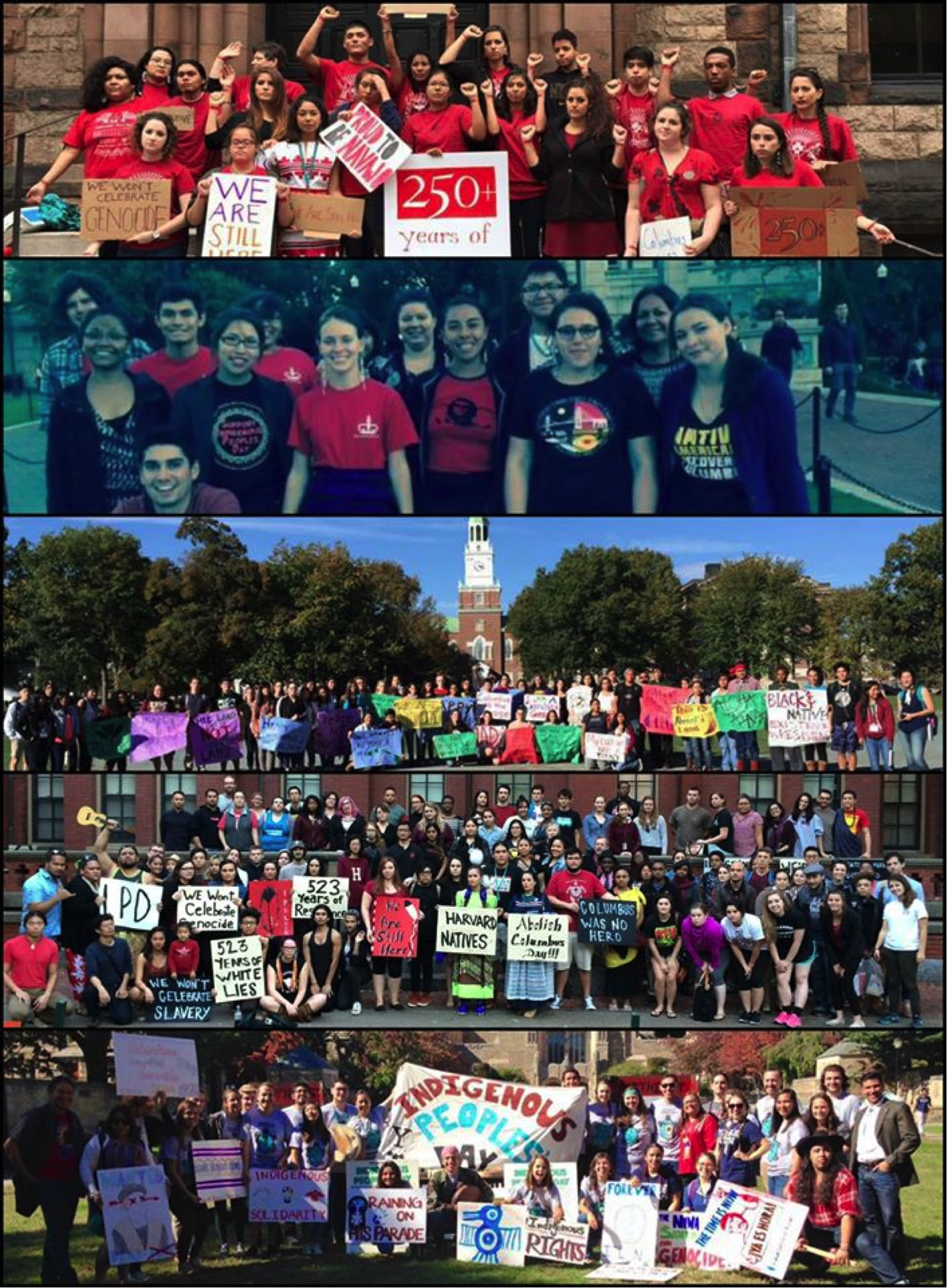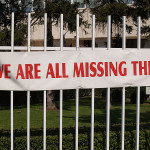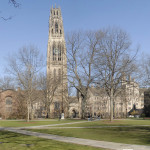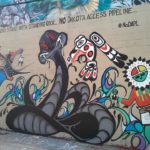by Ishrat Mannan and Didem Kaya
“It is Palestine. Not a dream, but a people. Not a refugee camp, but a country alive in its people’s hearts.” – Vijay Prashad
“We are not myths of the past, ruins in the jungle, or zoos. We are people and we want to be respected, not to be victims of intolerance and racism.” – Rigoberta Menchú
This past weekend, we celebrated the richness of Palestinian culture on Old Campus with the Second Annual Palestinian Cultural Festival. Simultaneously, New Haven celebrated over 500 years of resistance with Indigenous People’s Day. The Smile for Palestine event included Middle Eastern food, Palestinian music and dabke (traditional dance), and art while Indigenous People’s Day involved native music, poetry, dance, a keynote speaker, and a community meal.
This year it was coincidence that these two events took place within the span of one week, but the connections between these two struggles have been increasingly highlighted by Palestinians, Natives, as well as outsiders in support of these movements such as ourselves. The Association of American Studies declared an academic boycott on Israel. It is important to remember that AMST is a place where professors from Black Studies and Native Studies come together under the same umbrella. For better or worse many of these fields are still considered subfields under AMST in many universities. This allows for an ASA that is generally aware of historical connections between settler colonialism at ‘home’ and ‘abroad.’
Some Yale students might remember Native American Studies Professor Steven Salaita visited campus last April and spoke on a panel co-sponsored by the Council on Middle Eastern Studies, the Program in American Studies, and the Yale Group for the Study of Native America called Historicizing Settler Colonialism: From Wisconsin to Palestine. Last year Salaita’s story made national news when he went to Twitter to express his views regarding Operation Protective Edge. In an unprecedented case, the University of Illinois fired him despite having granted him tenured job offer at the American Indian Studies Program with allegations of hate speech.
The events this weekend on Yale’s campus were primarily cultural, putting forward an association of Palestine and of Natives outside the realm of conflict or victimhood. Too often, the stories of an oppressed people are told as simply that — nothing more and nothing less. Smile for Palestine and Indigenous People’s Day fights back on the dominant narrative and presents itself as the storyteller through celebrating vibrant culture, music, and food that existed before erasure.
We must understand that the cultural is always political; these two realms cannot be divorced. However, there is power in taking an approach that is less overtly political and more celebratory. To focus on the people rather than the oppressor, to celebrate endurance, to reclaim history in an apolitical way is still infused with political statement.
Tragedy narratives may seem appealing at first. They certainly have been utilized by people on all ends of the political spectrum. Genocides, oppressions, occupations are incredibly difficult to communicate. So one might feel the need to find strength in pushing tragedy narratives to rightfully get across how devastating circumstances have been. A less considered effect of tragedy narratives came up in Birgit Rasmussen’s Native American Literature seminar where students discussed how tragedy is a convenient way to frame things as having ‘sad, unfortunate endings.’ What happened was tragic, but it is in the past tense. It happened. What is more is that it alludes to an idea of replacement of indigeneity, at which point the settler can claim s/he is “American,” or Native, without acknowledging the millions of original peoples.
Those familiar with the Palestinian resistance movement will remember that a common Zionist argument is that Palestine does not exist. Palestinians did not exist. A land without a people for a people without a land. How familiar that sounds. Manifest Destiny, anyone?
We want to recognize that the cultures are dynamic. That the culture that exists currently is different from the one that pre-existed colonial powers. However, the growth and presence of occupation cannot diminish the original culture. We keep this in mind as we uphold and echo a rallying principle of Palestinians: existence is resistance. The efforts on campus that you may have participated in, walked by, or simply seen advertised should be seen for the gesture that they are. An attempt to keep alive one’s story, heritage, and culture despite and in spite of the tragedy narratives or contexts of conflict that exist today.
Realize you do not have to be a native to this land, a Palestinian, or have ancestry tracing back to the pilgrims who arrived on the Mayflower to be invested in this conversation. Know that your understanding of history, race, and power are influenced by the dominant narrative. We all exist in spheres with dominant and not so dominant narratives, but you have a stake in how that dominant narrative can be reclaimed, retold, expanded, or changed for the better.
Food, music, gathering — these are all acts of holding on. Remembrance becomes a revolutionary act when it tells a story that is seldom told or too often forgotten/distorted. As we continue as students of Yale, citizens of this world, people who aim to be on the right side of history — let us push ourselves to remember. Honestly, correctly, and with courage.

